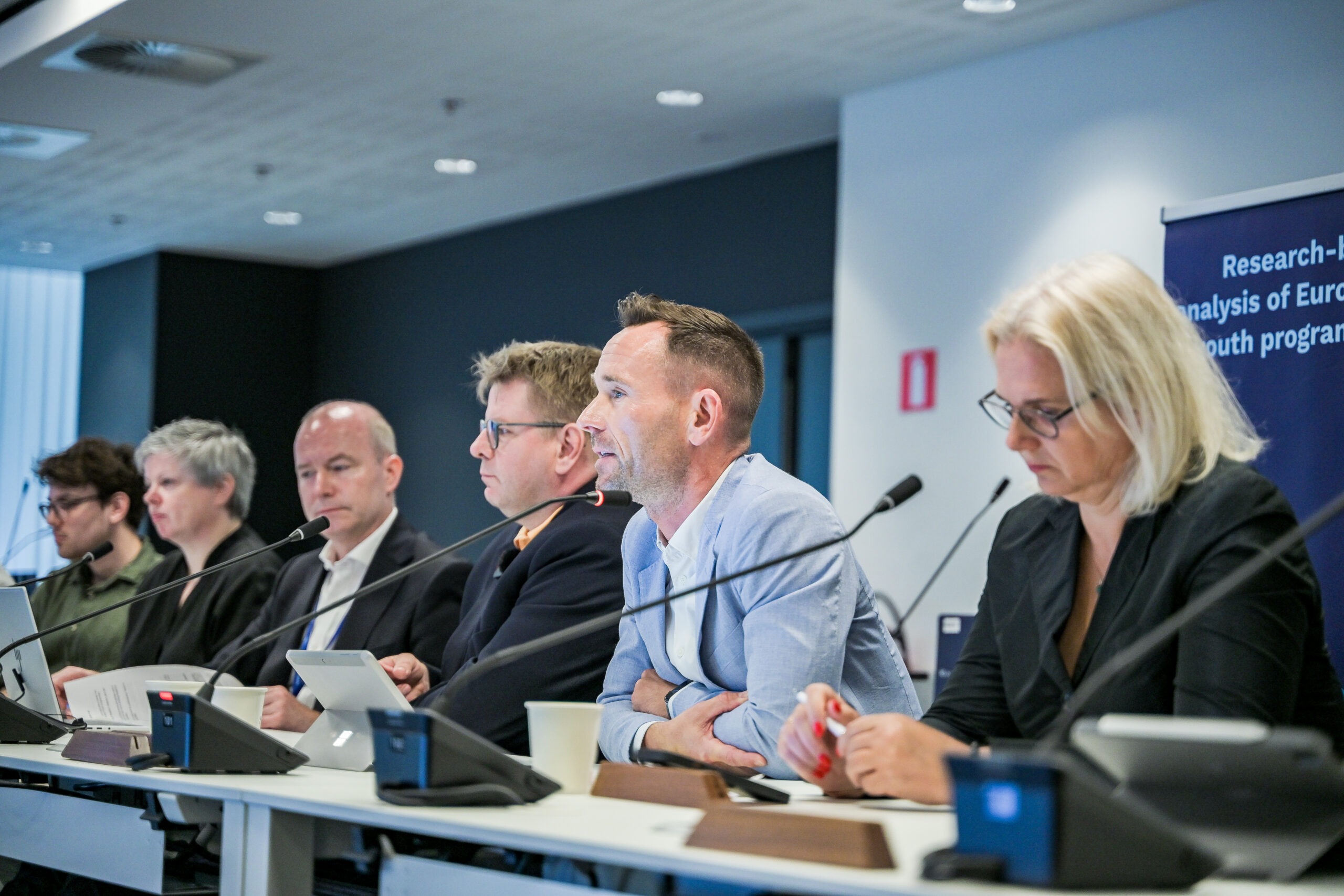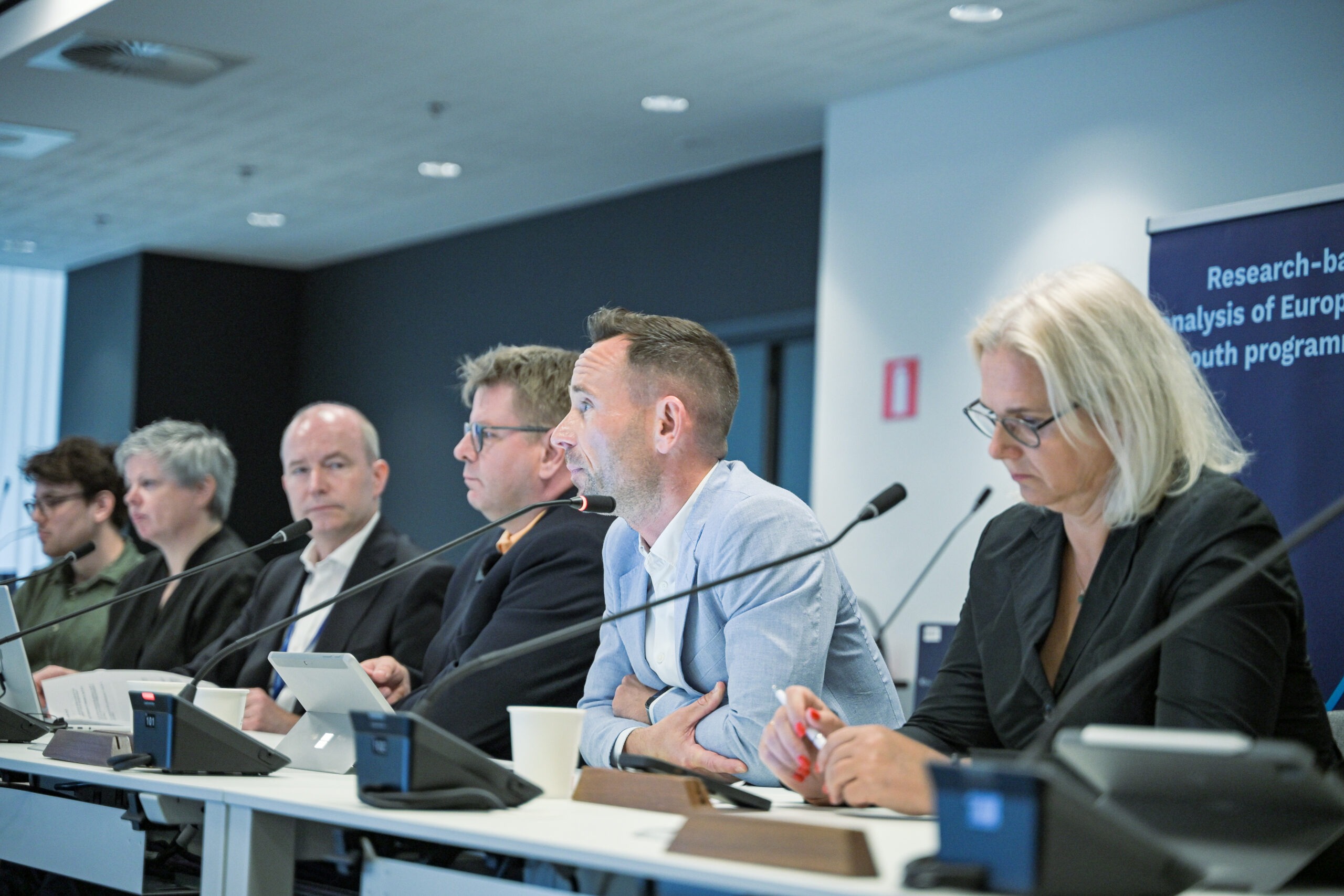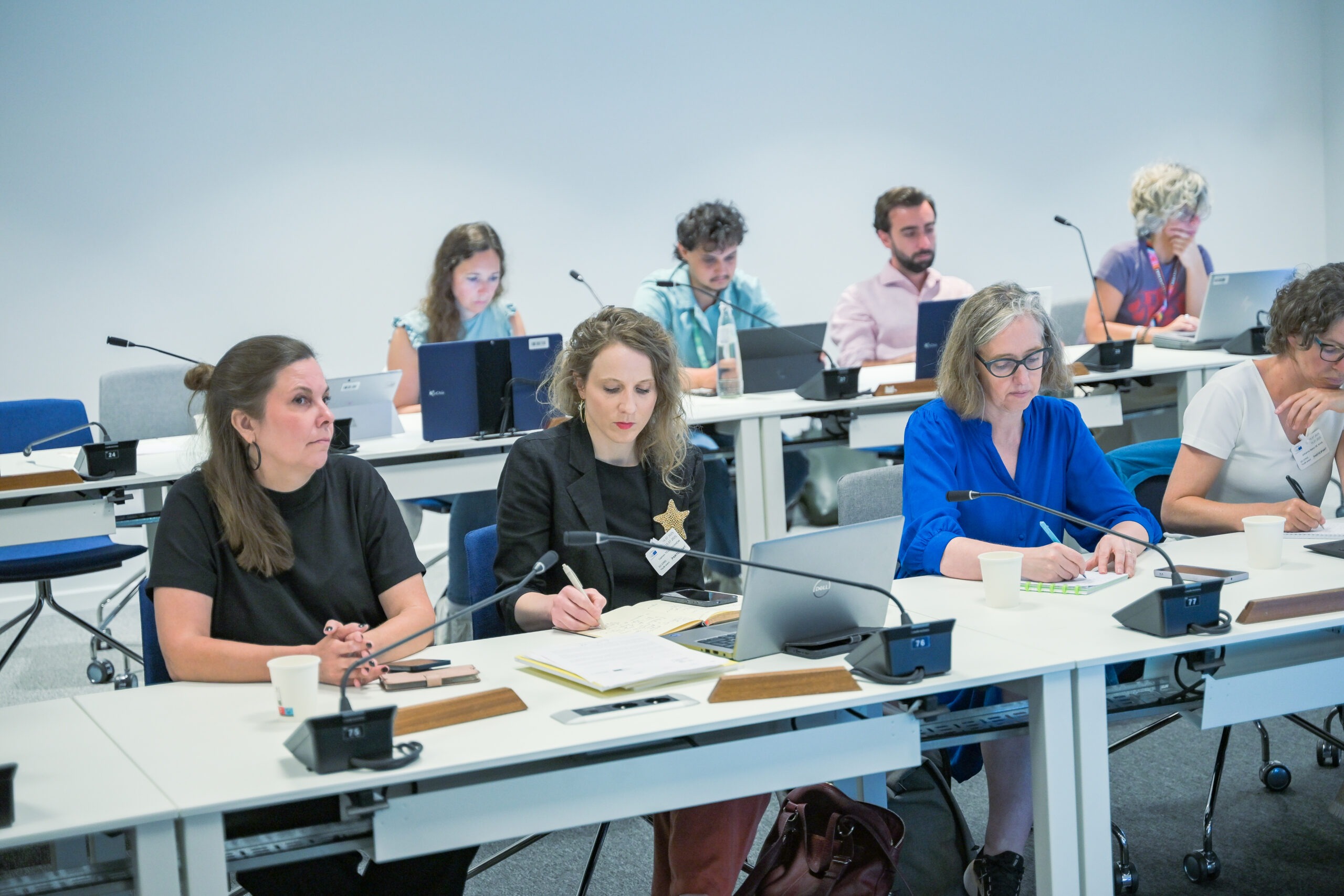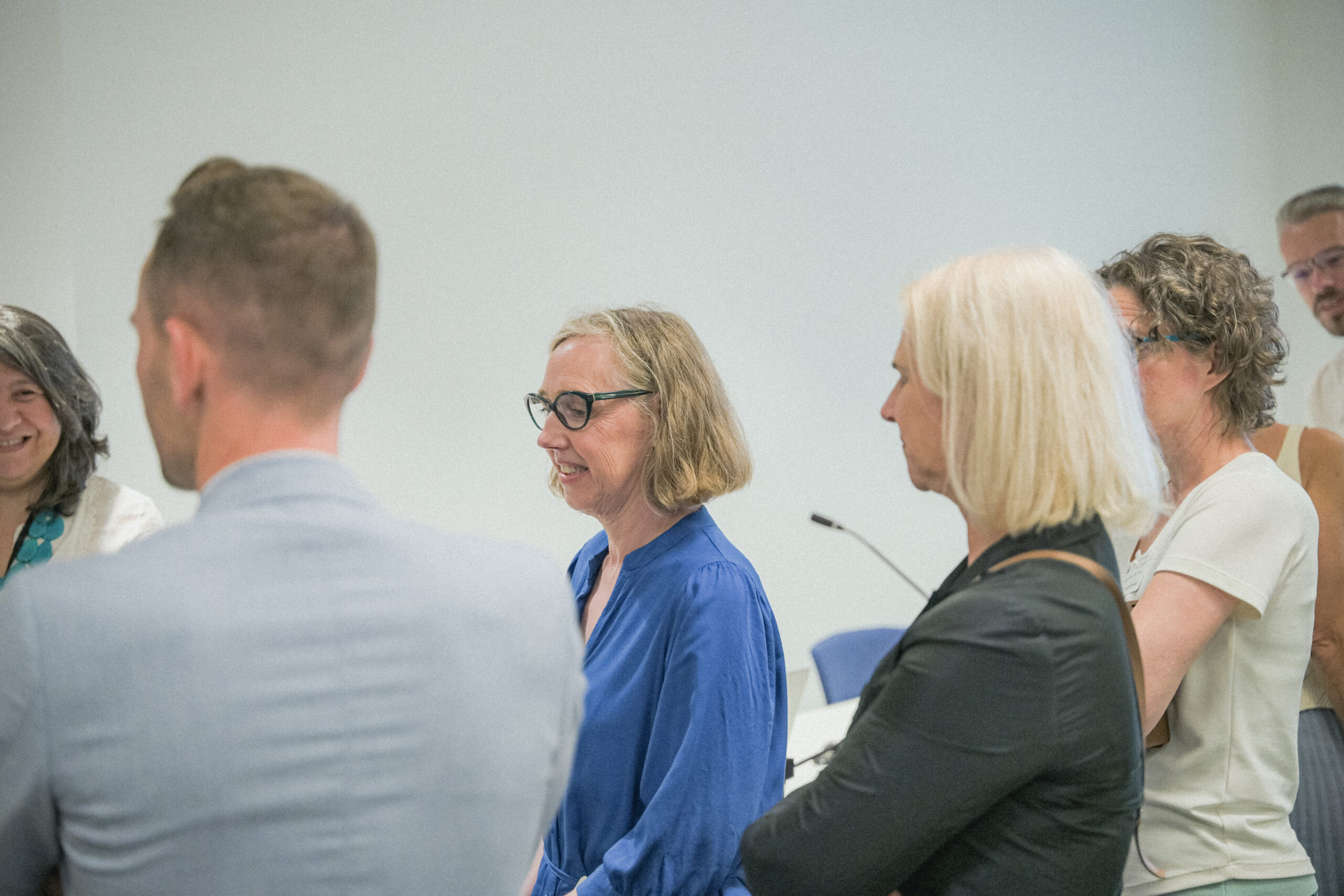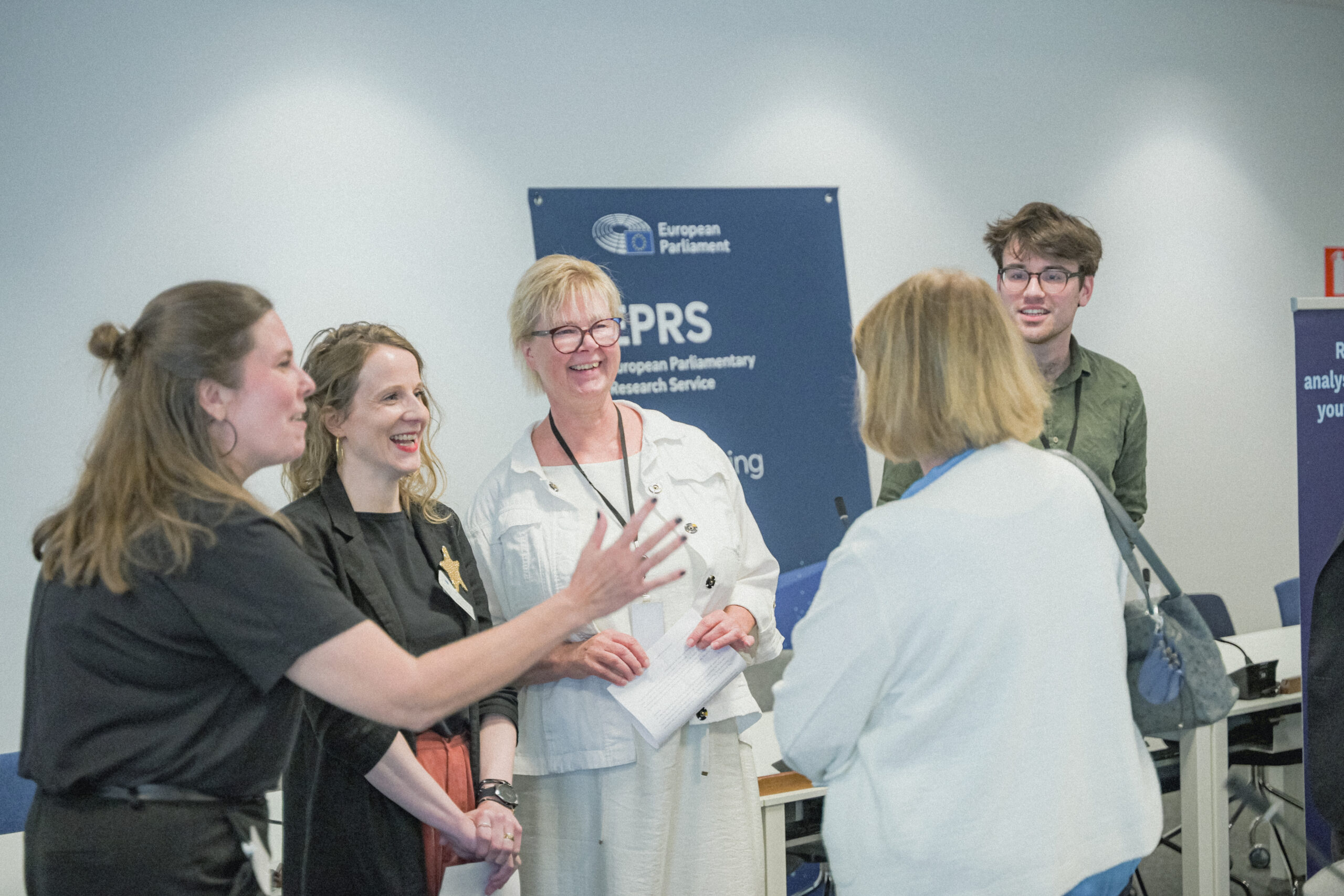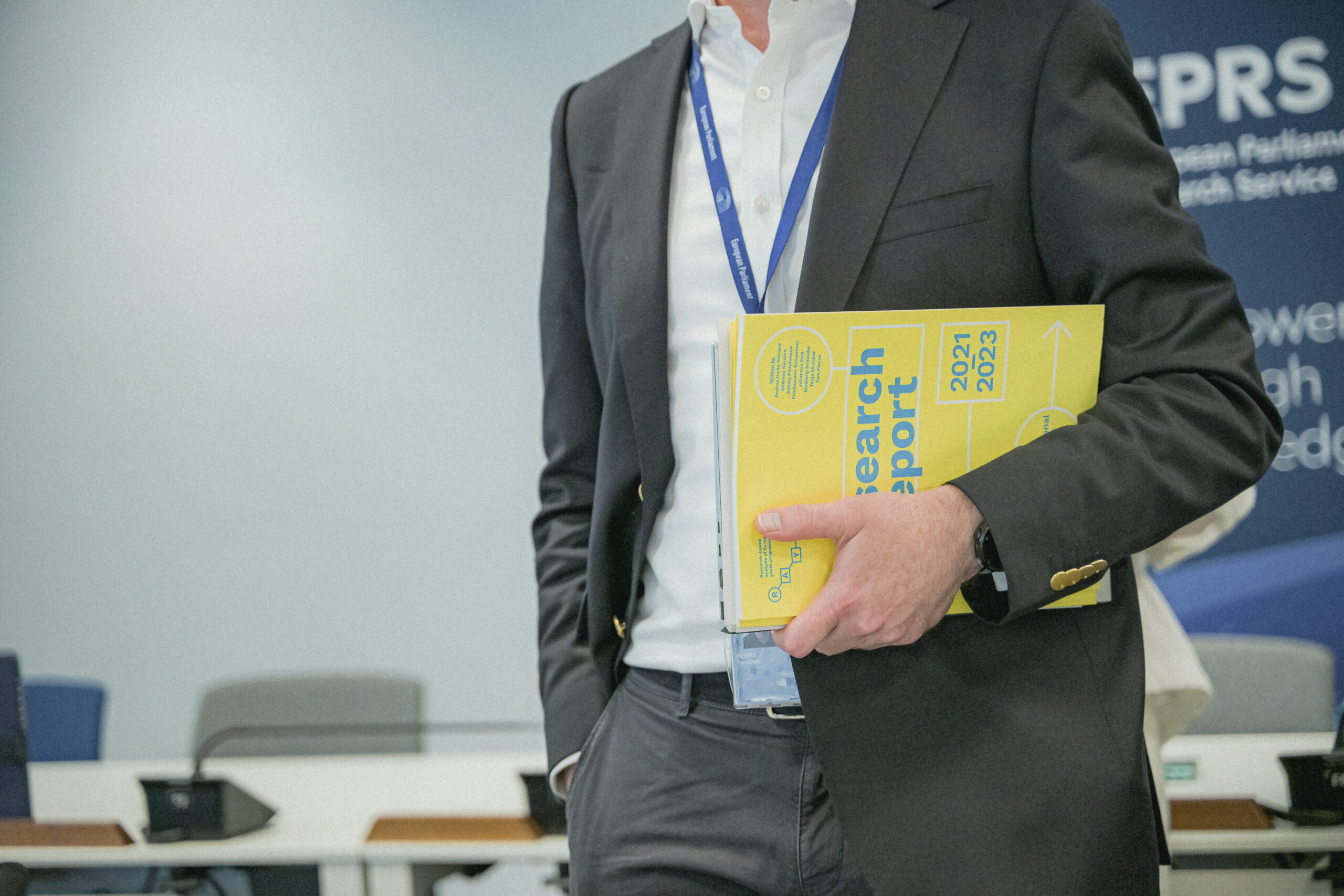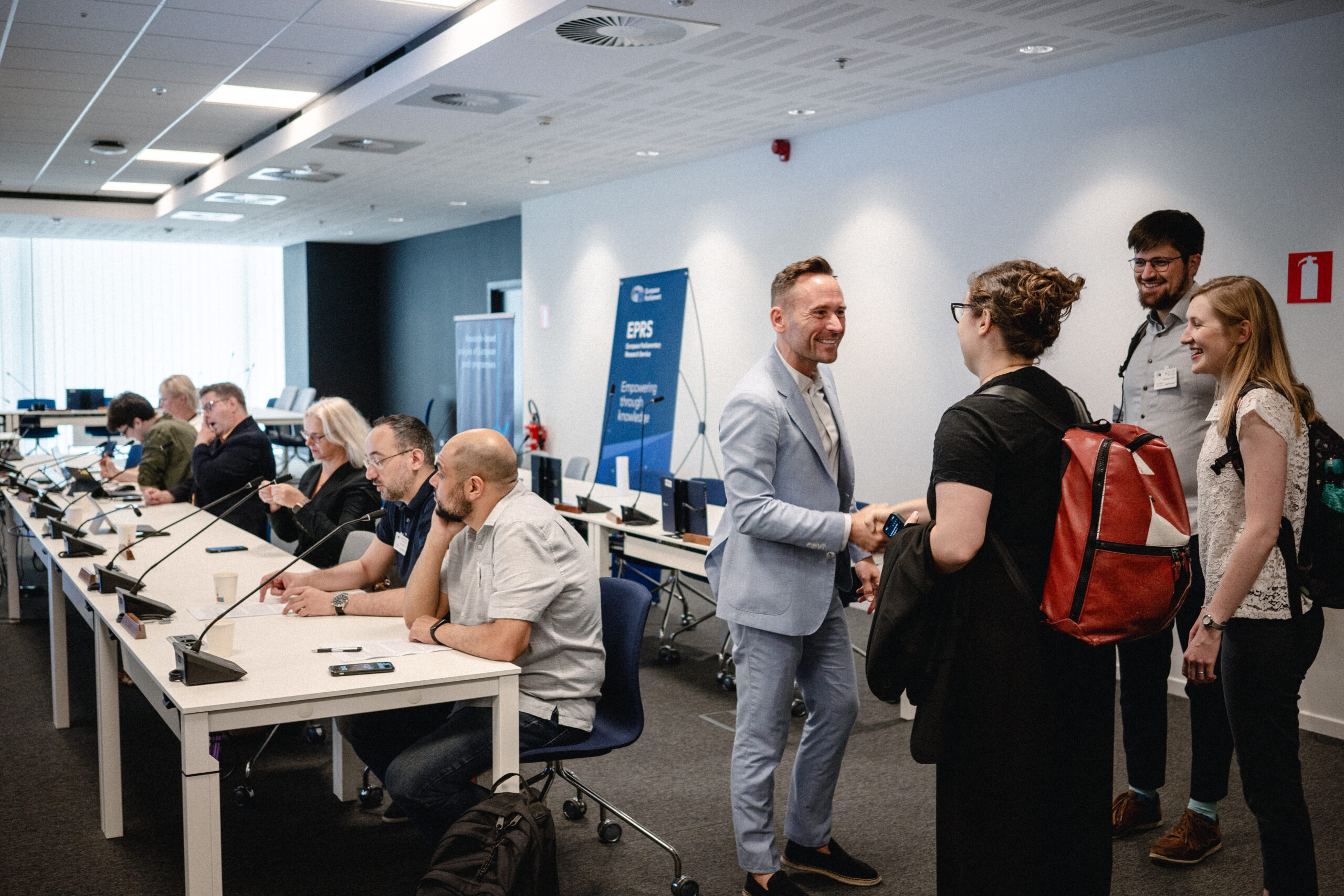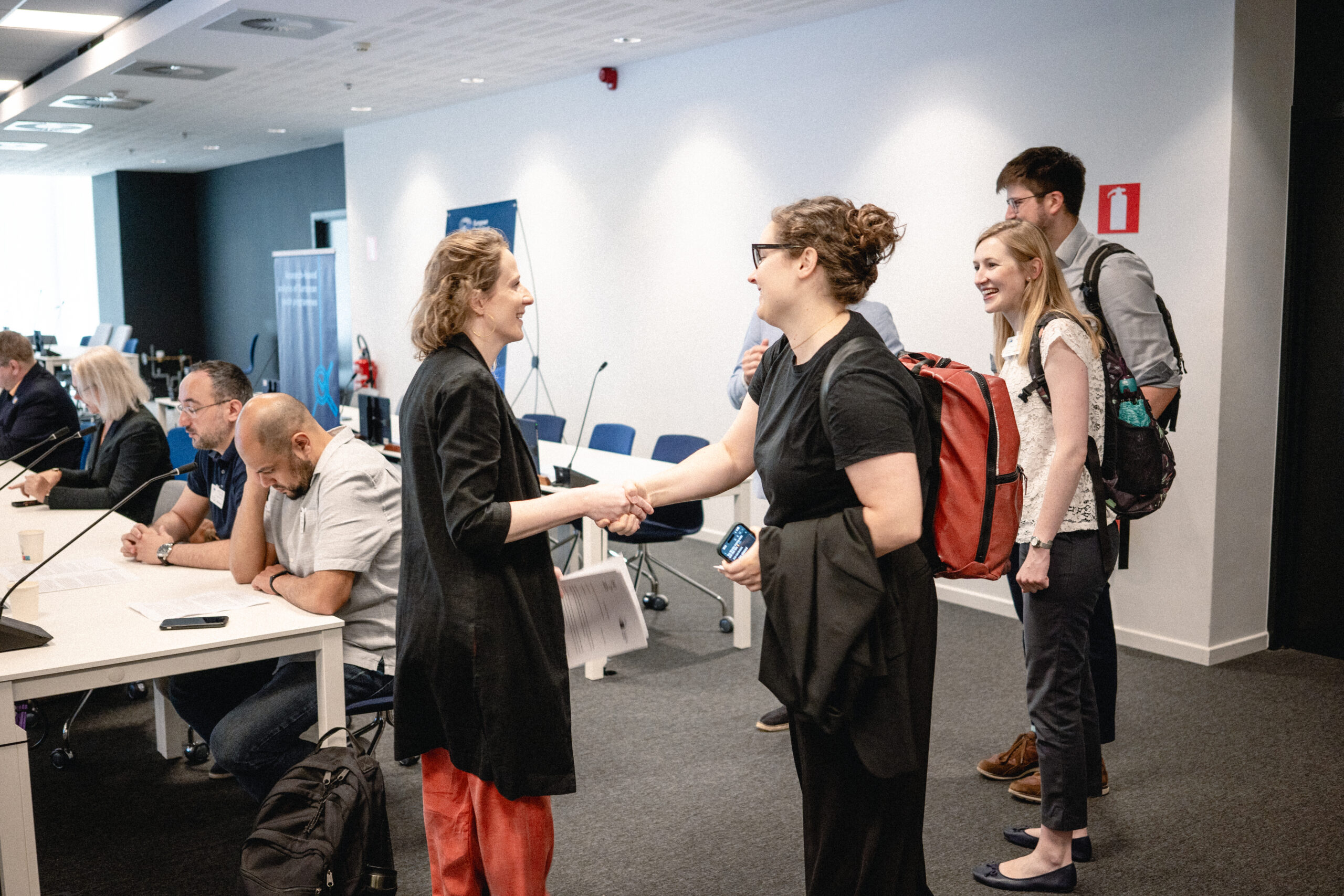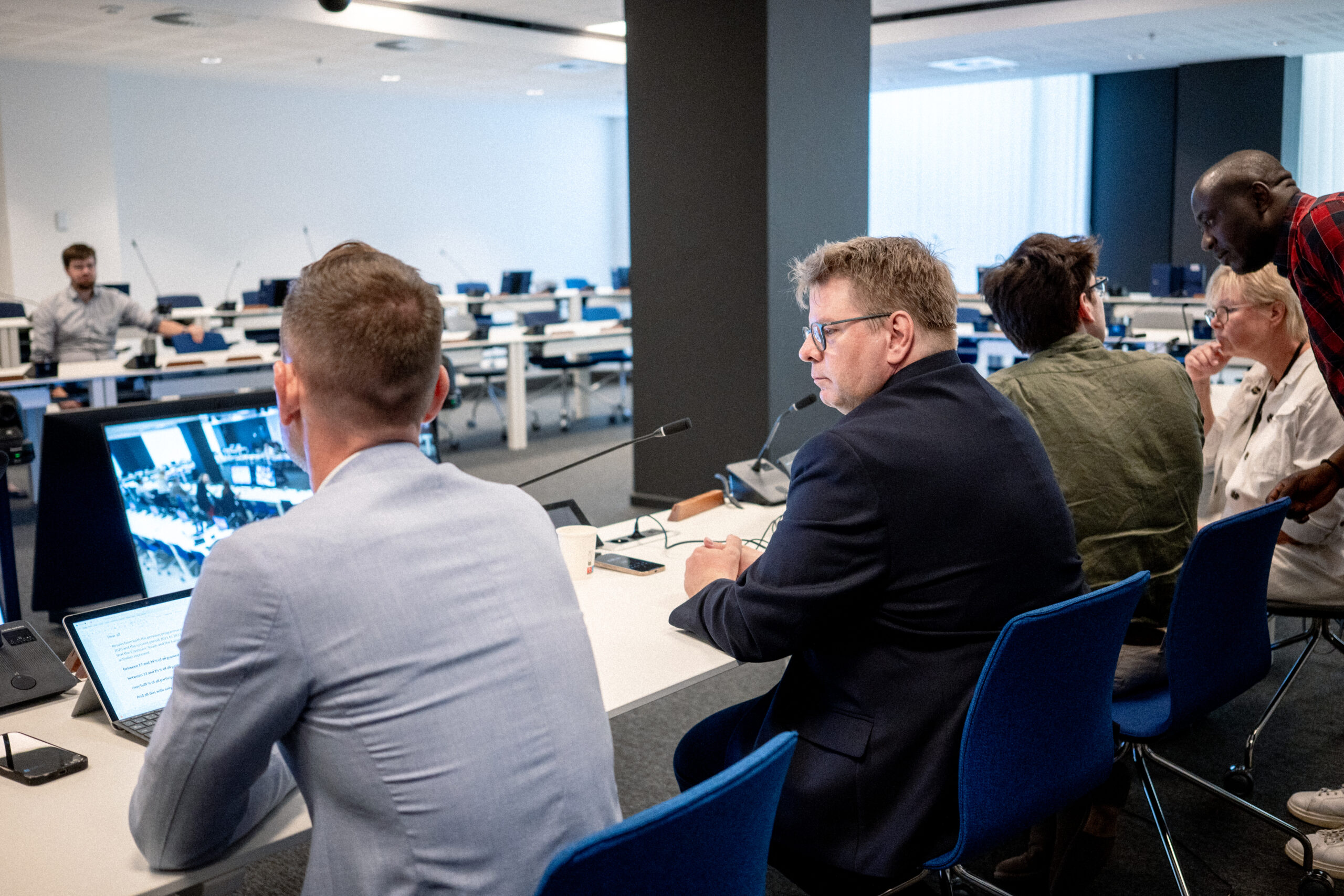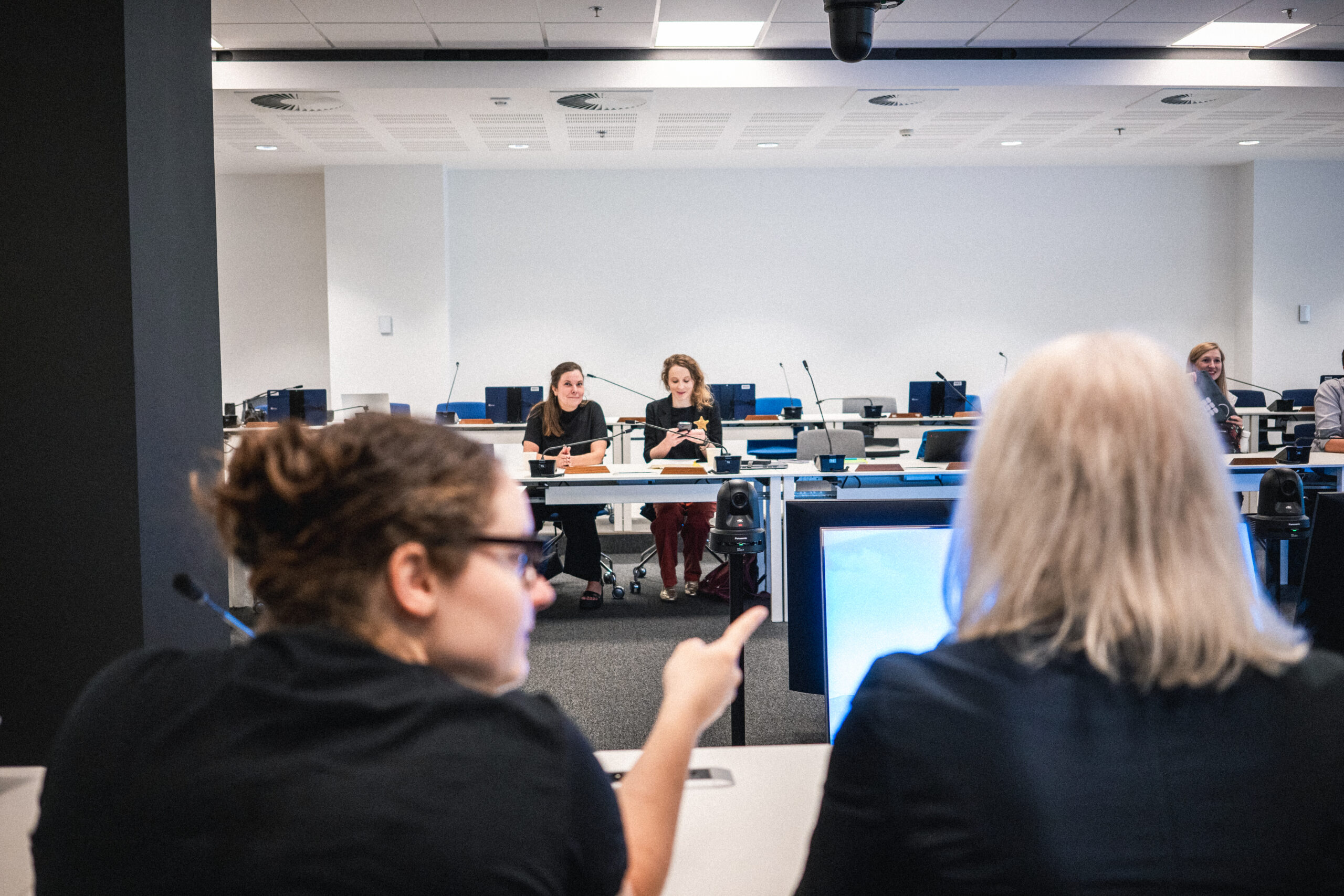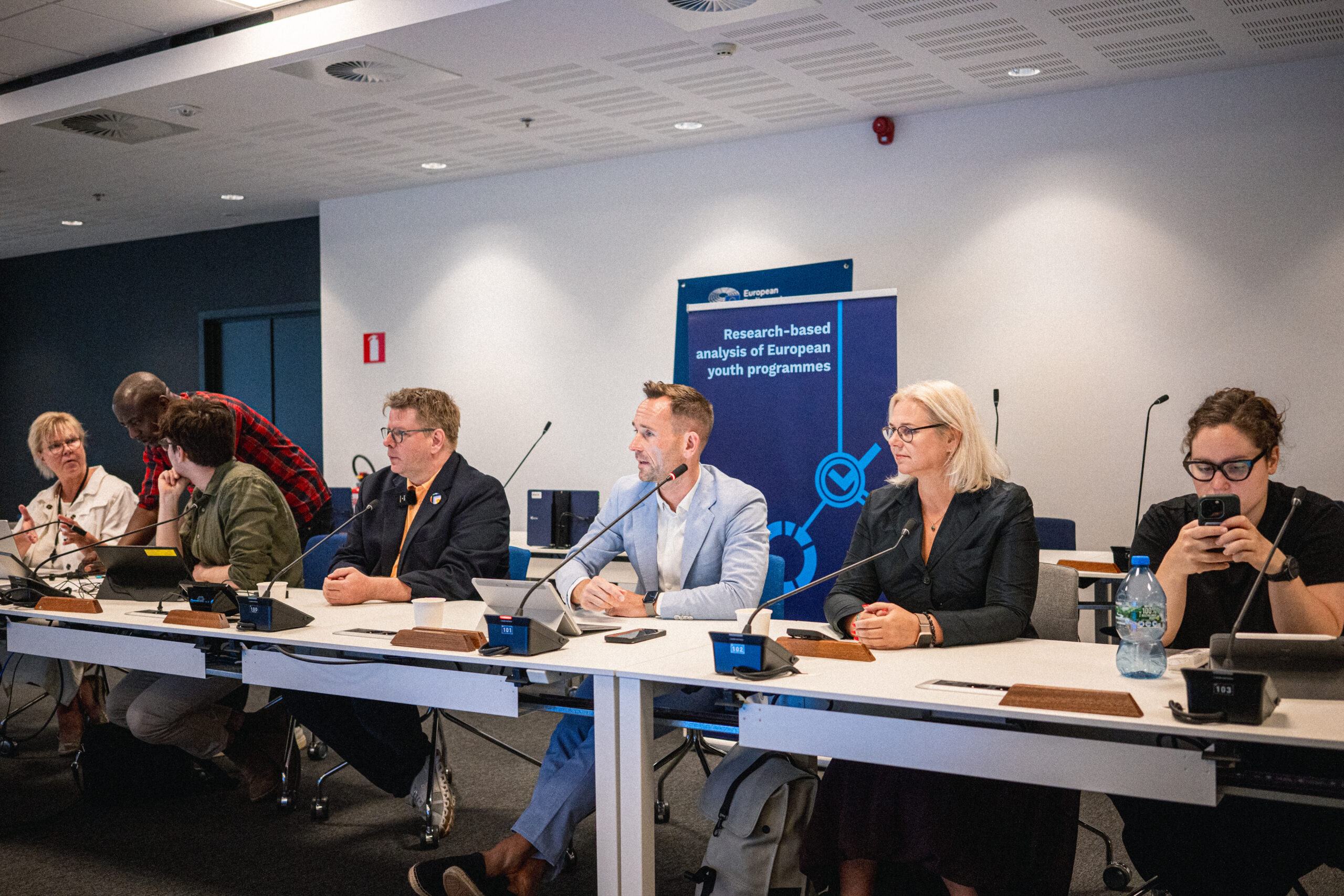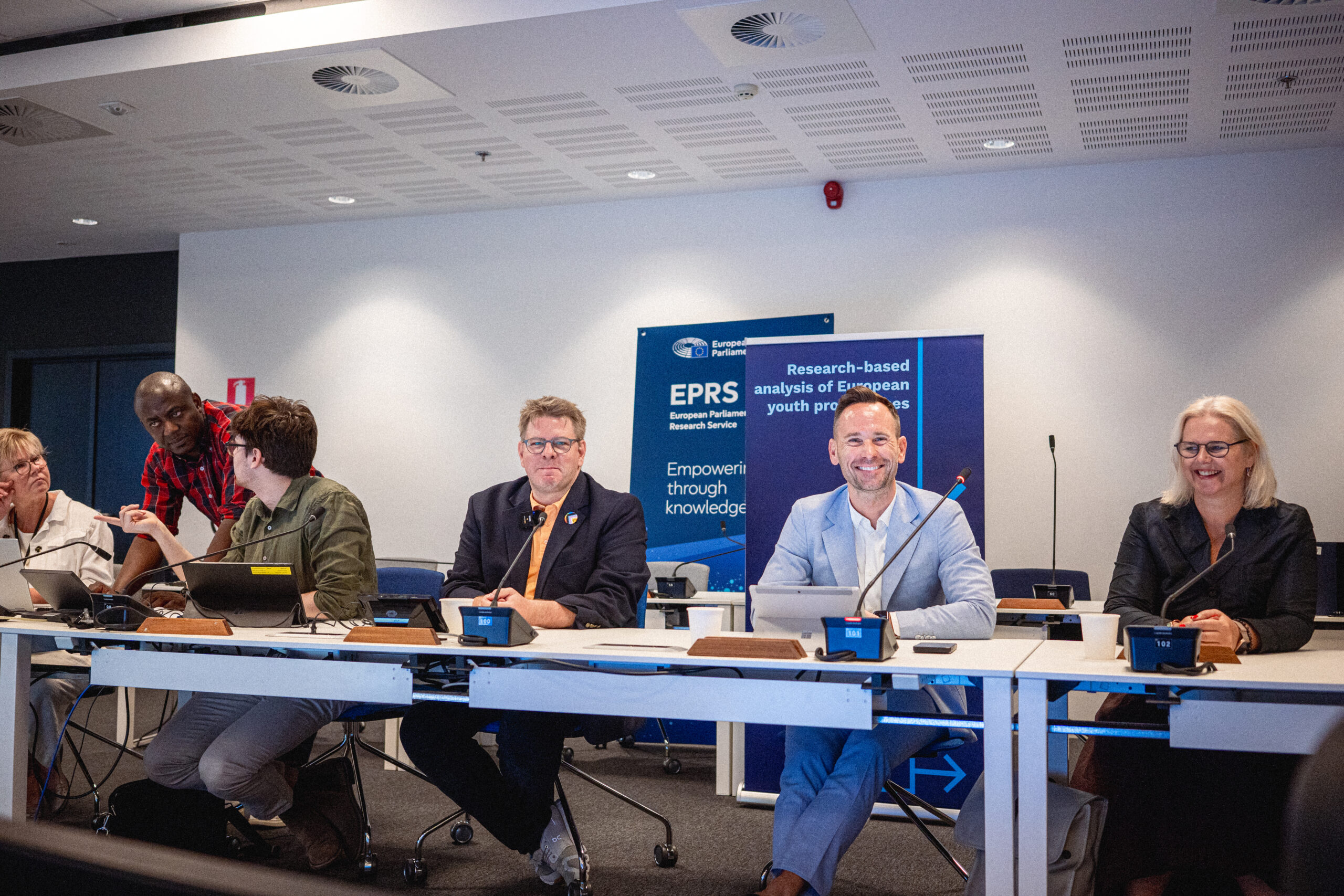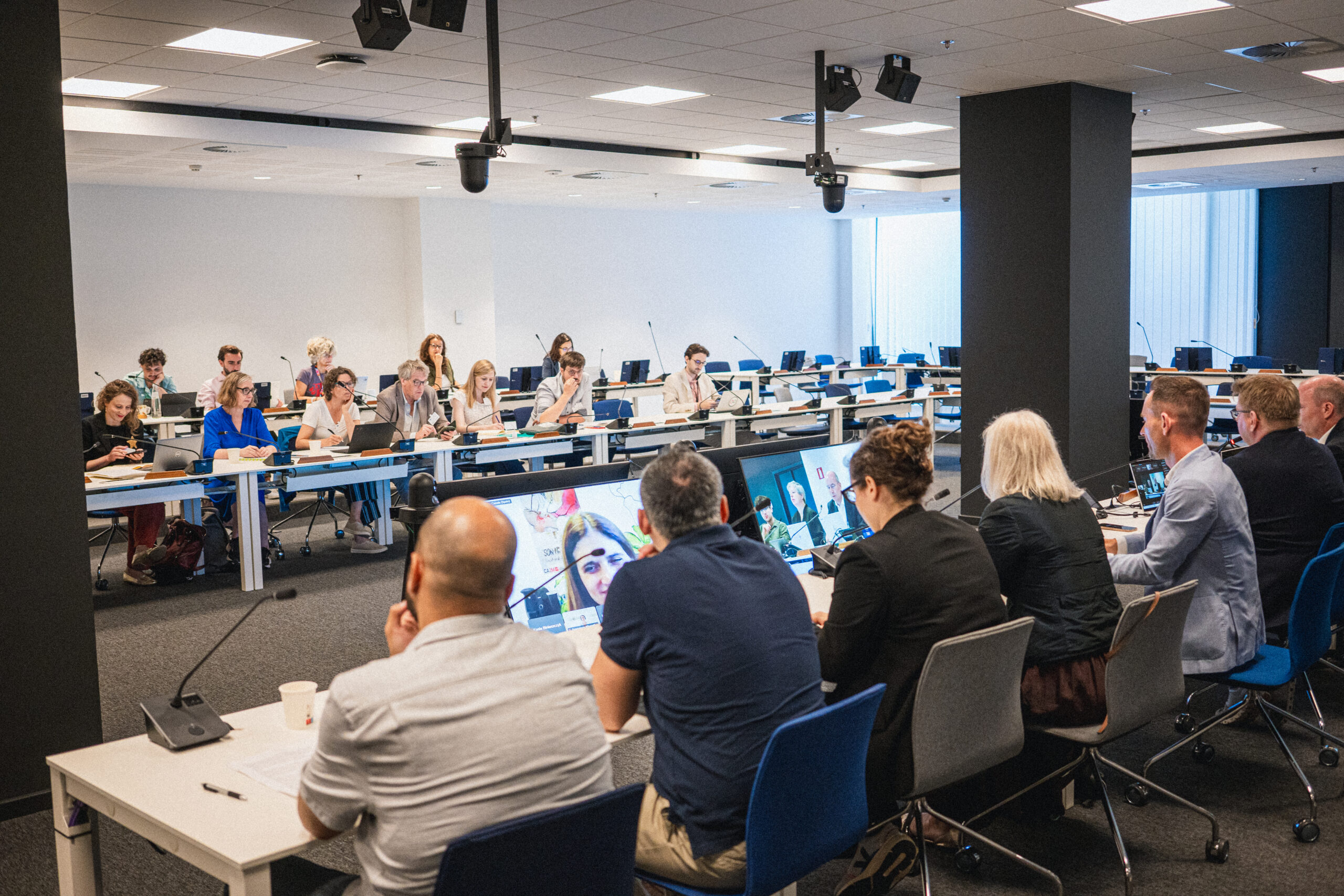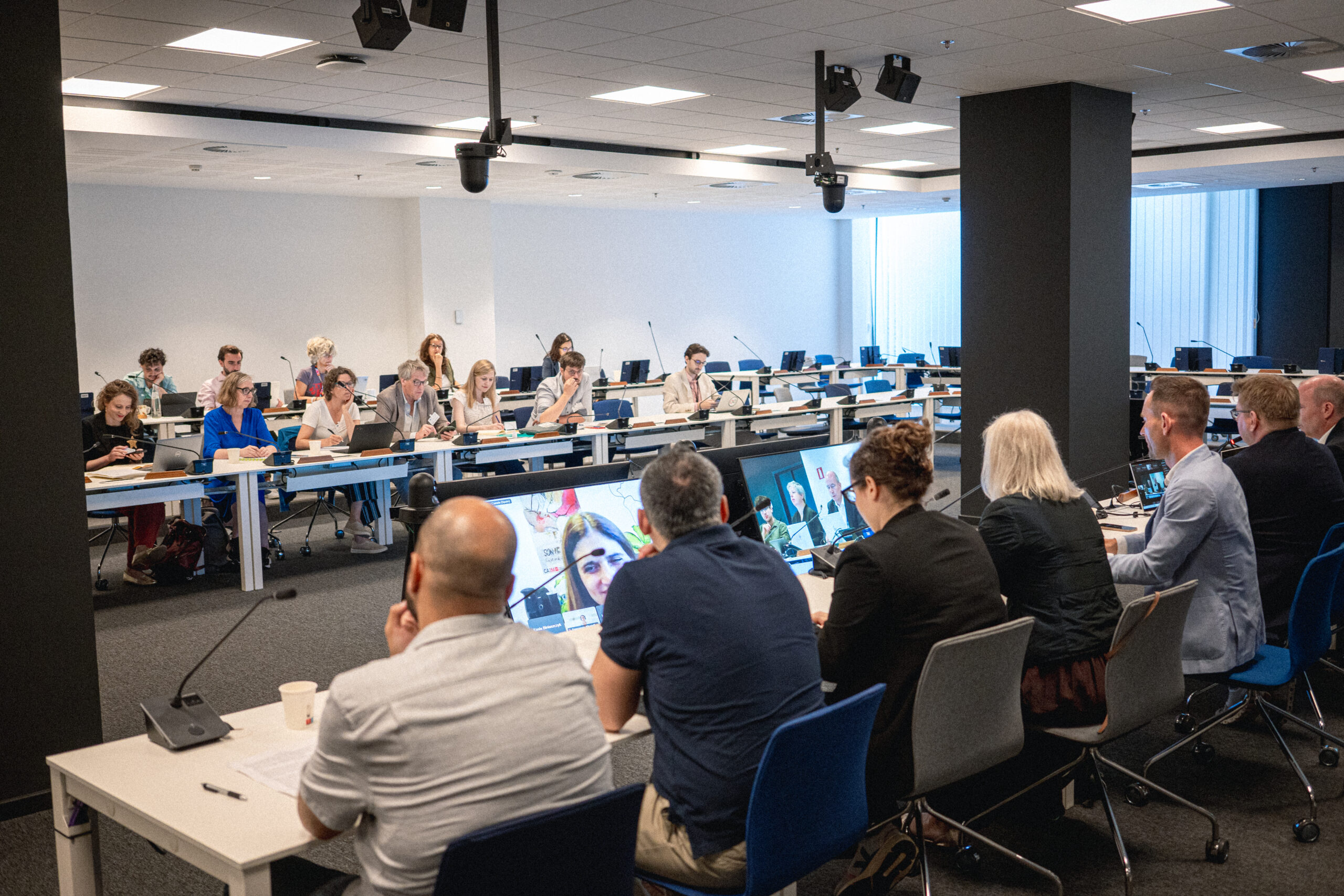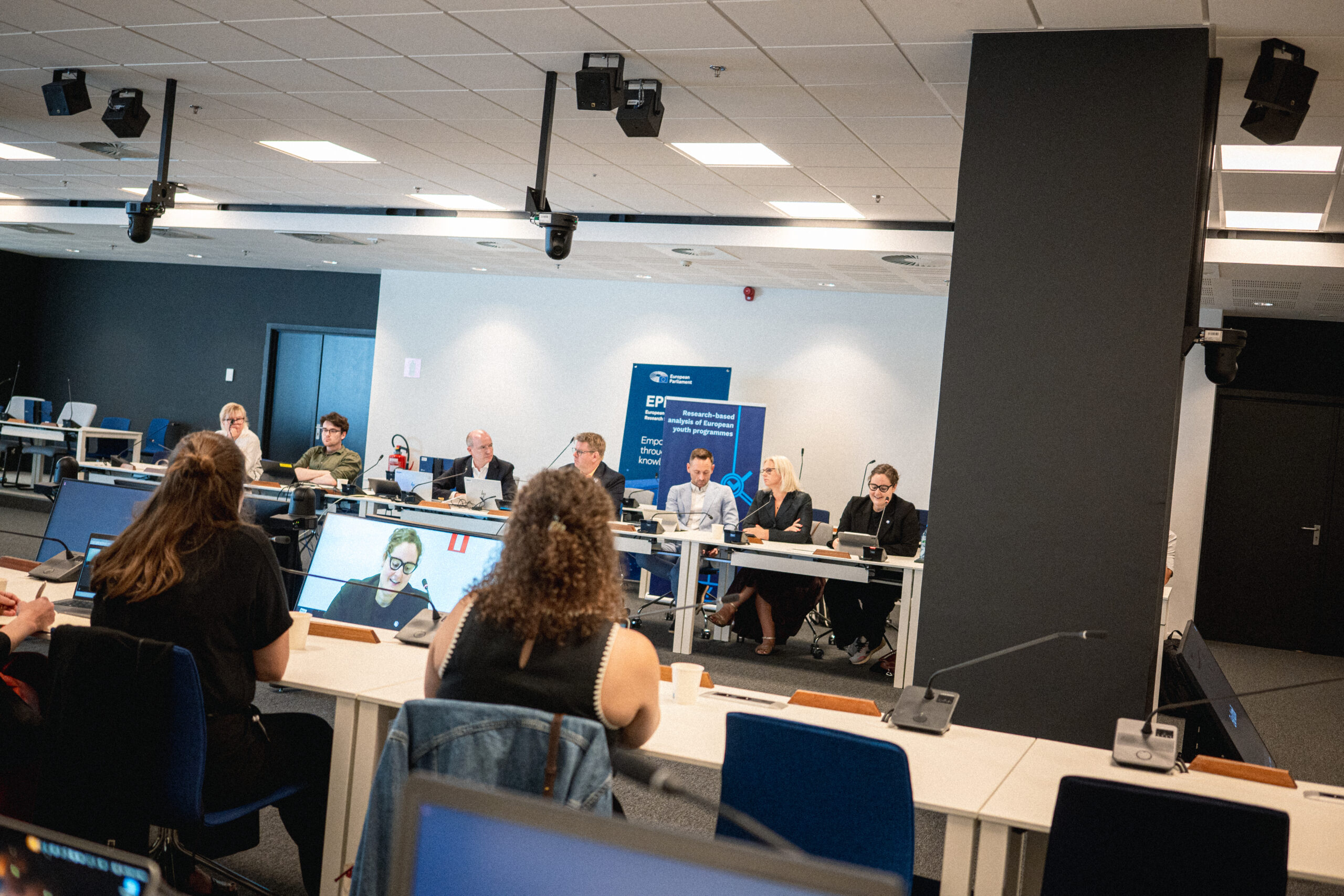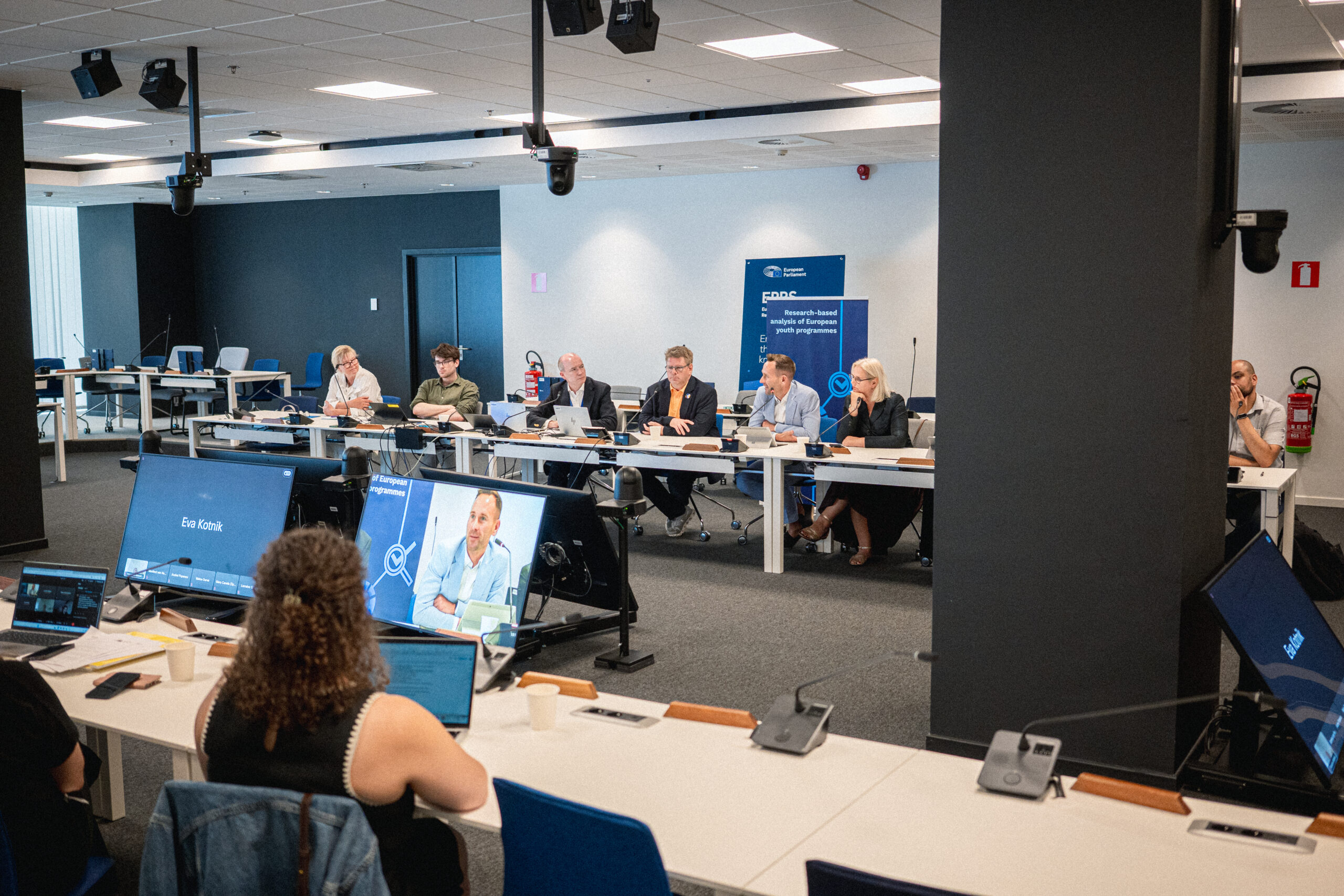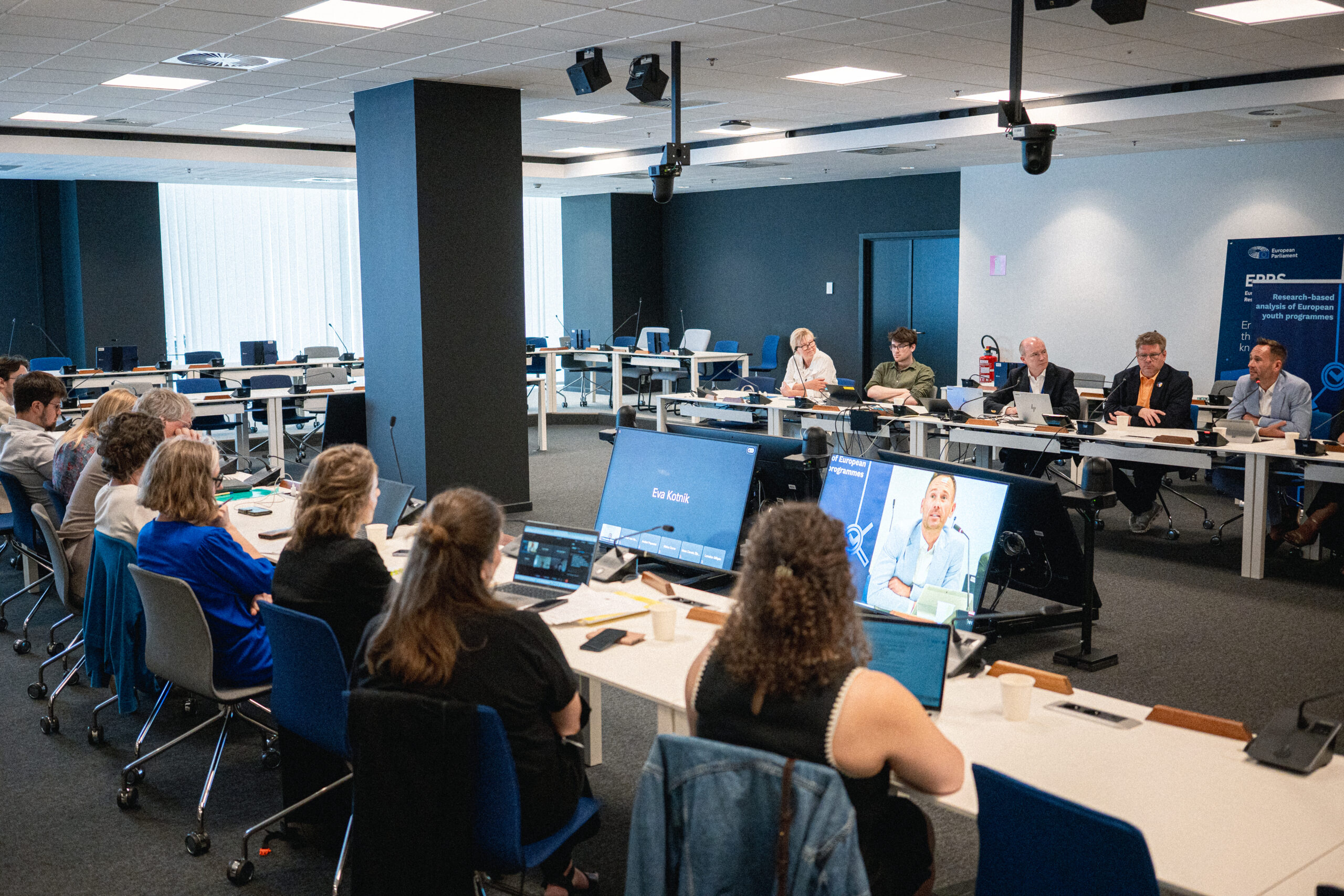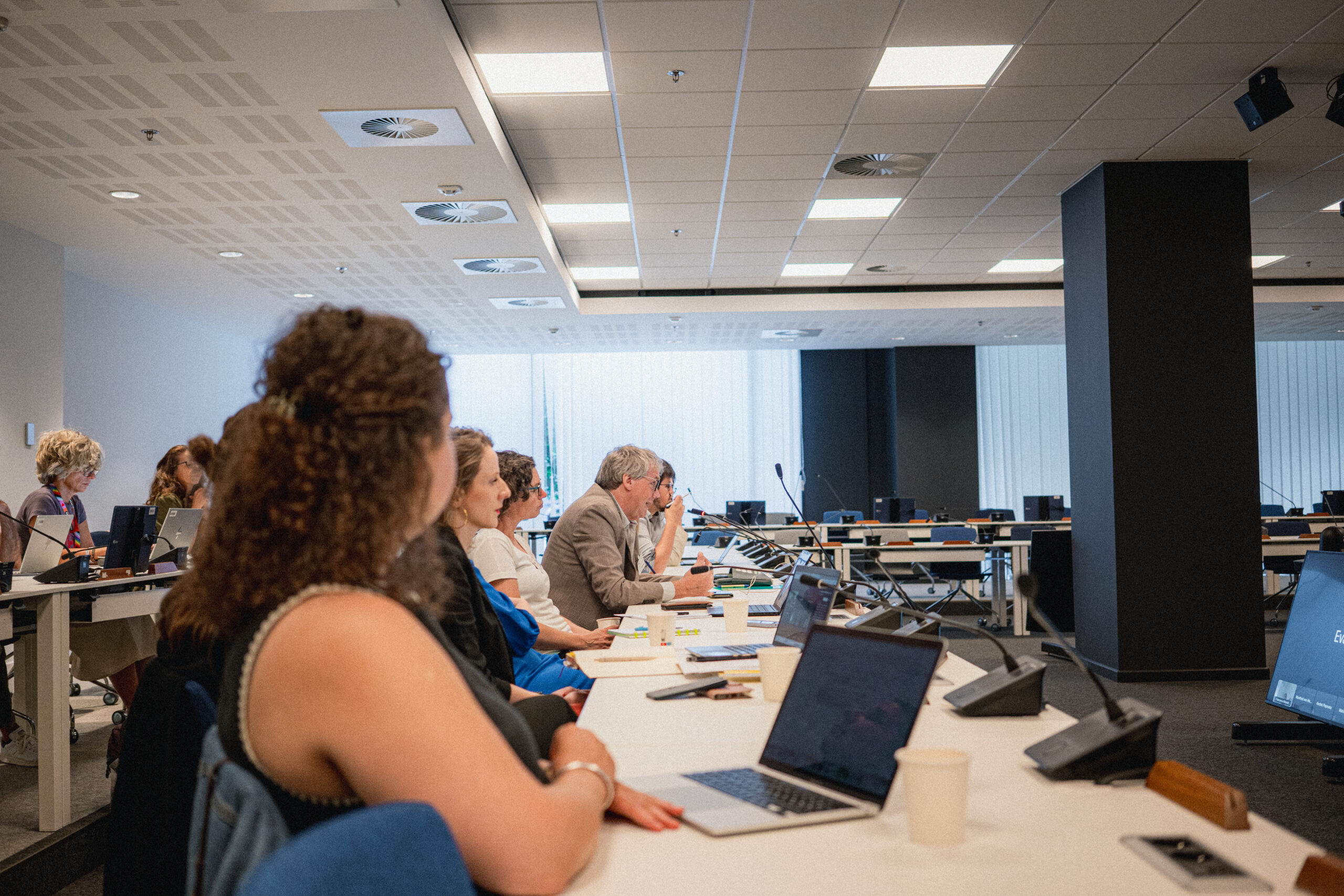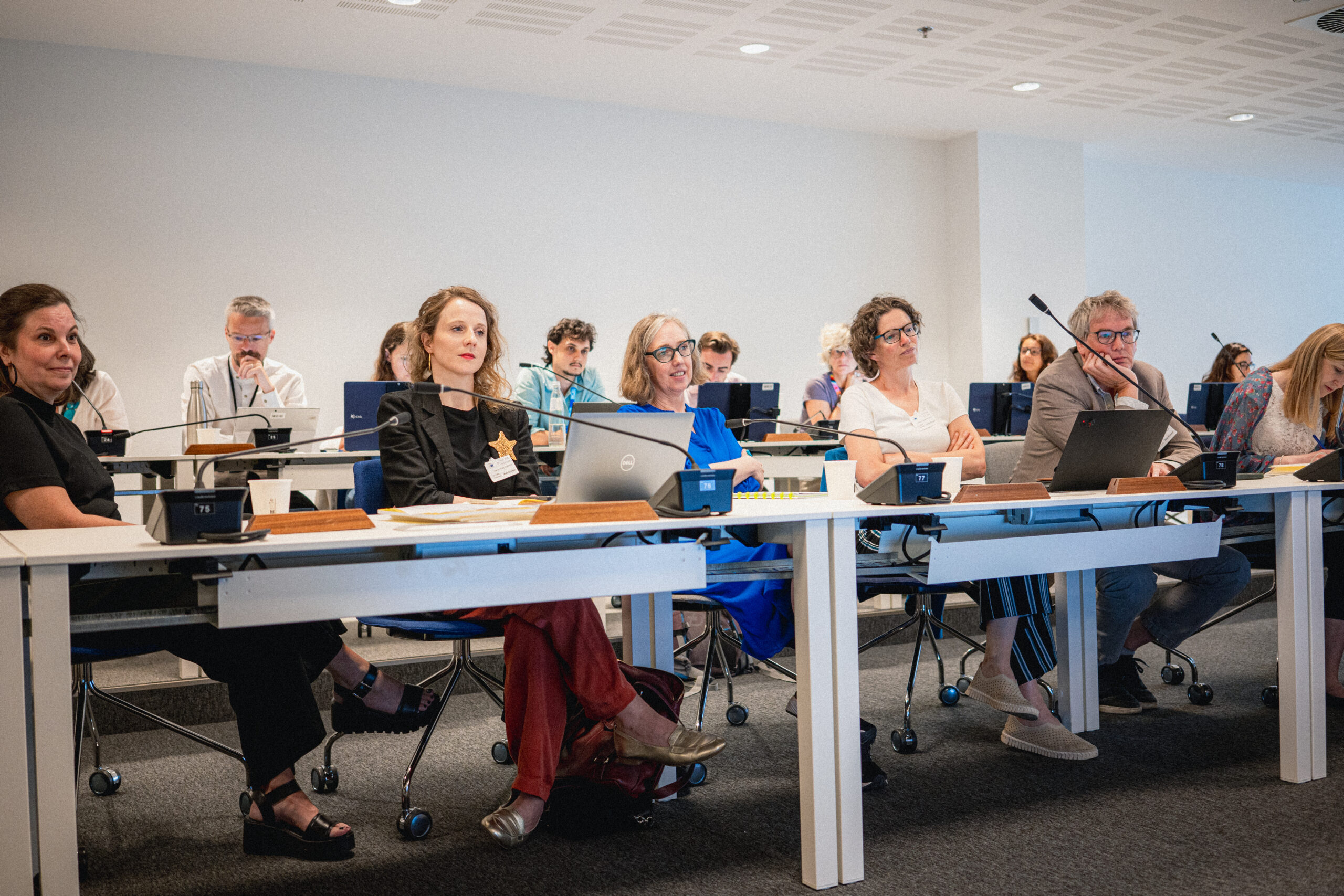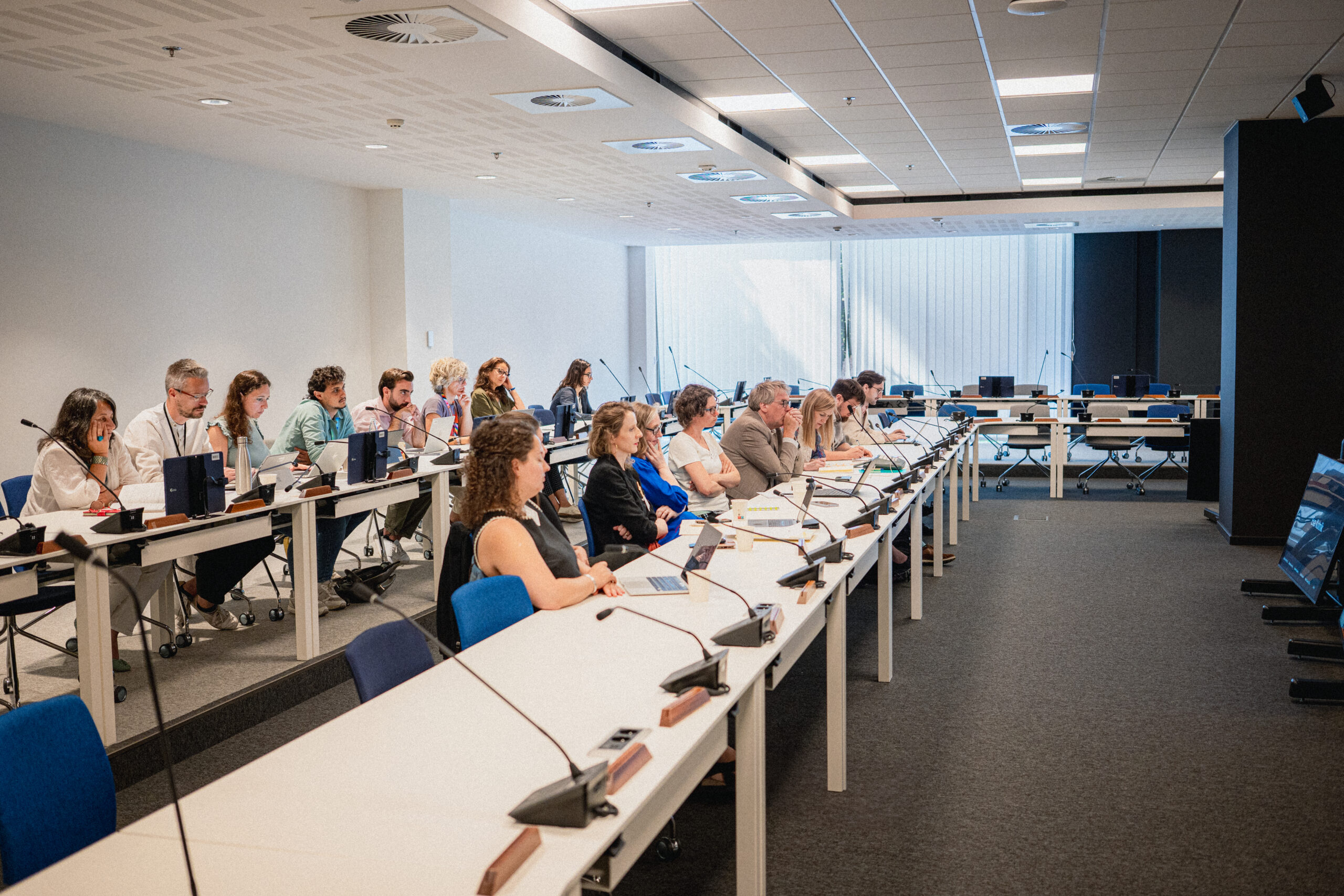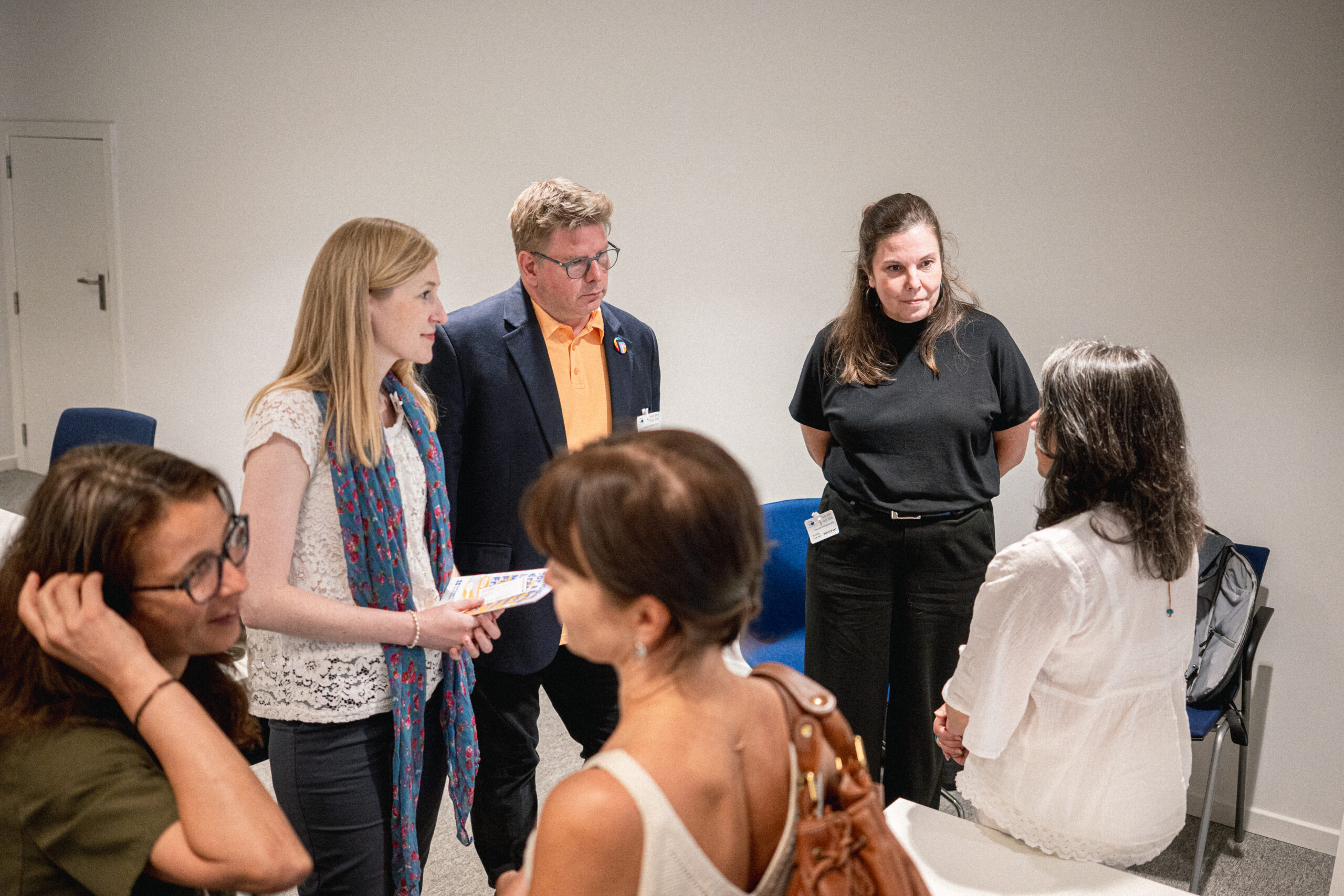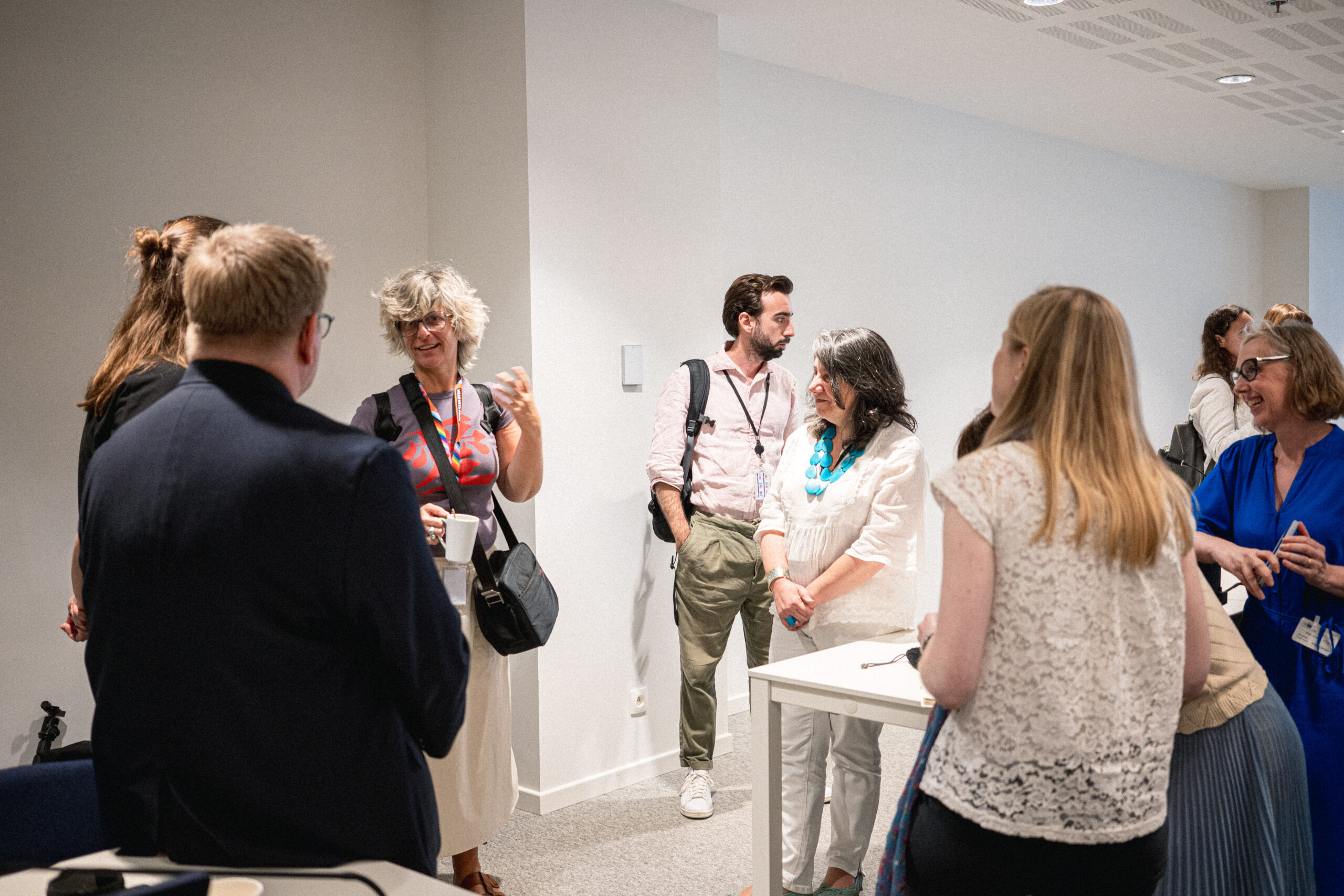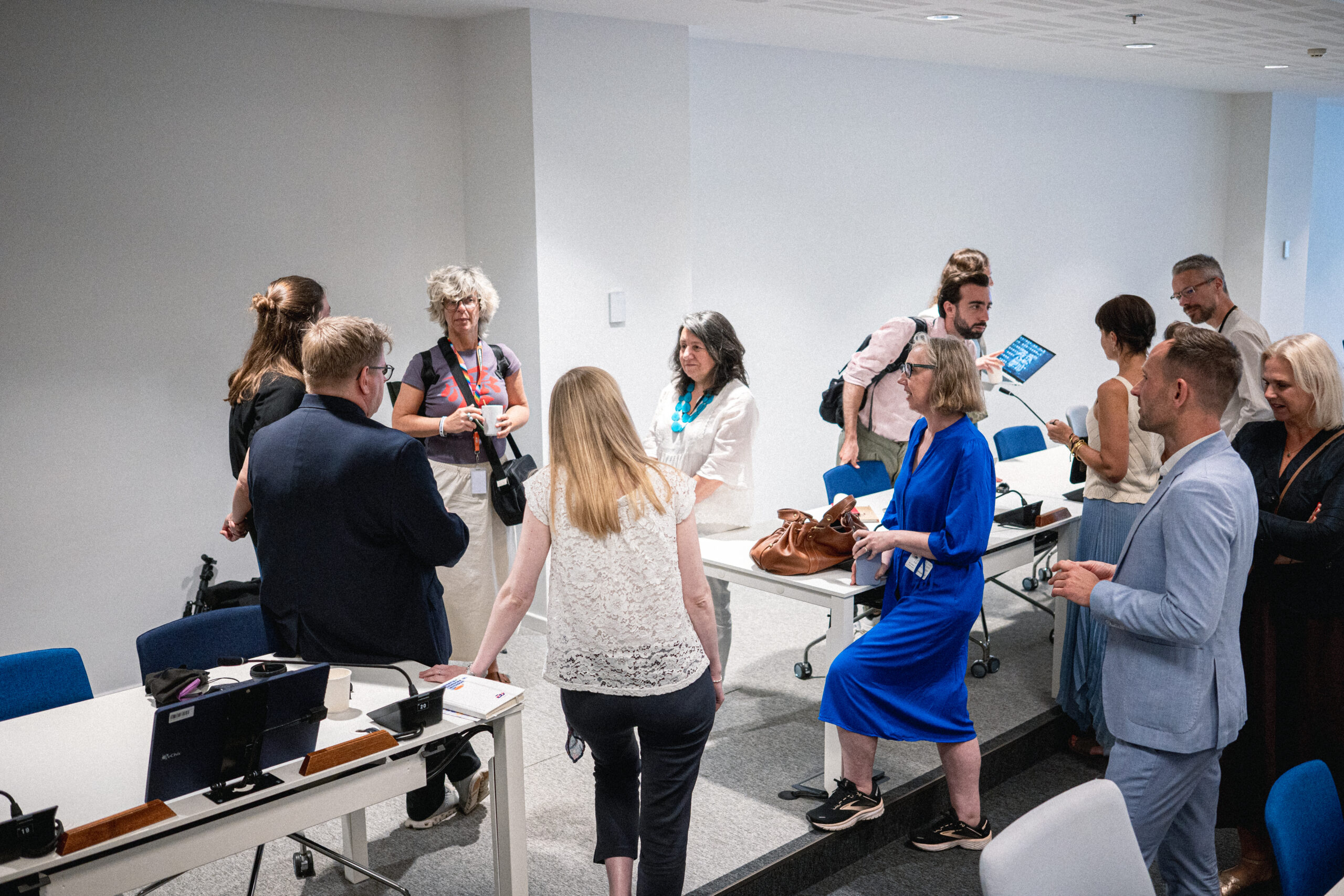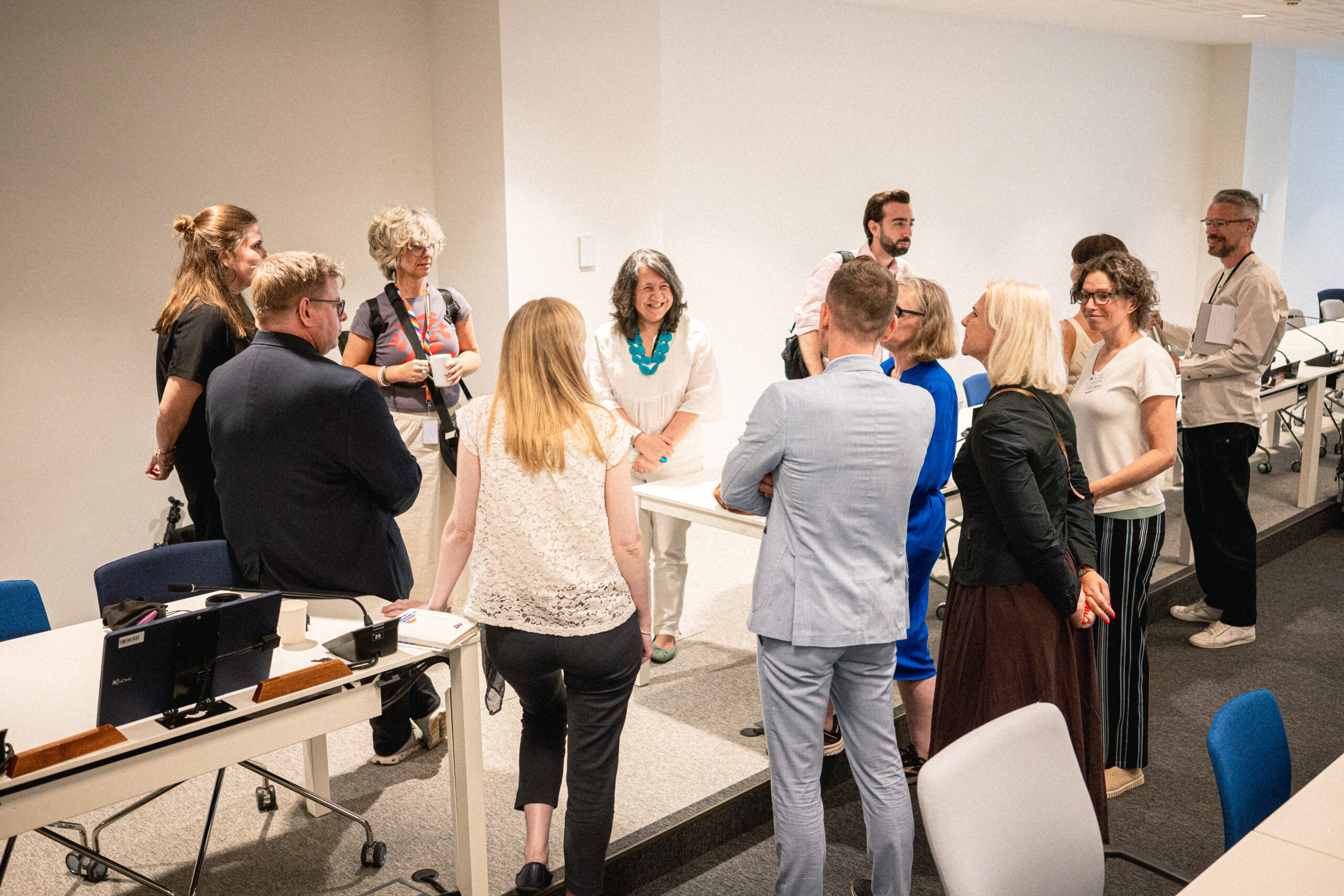Policy Event
Workshop on the future of the EU youth programmes
On 15 July, the RAY Network, in cooperation with the European Parliamentary Research Service (EPRS), organised a policy event on the future of the European youth programmes in the European Parliament in Brussels.
The Workshop on the future of the EU youth programmes offered policy-relevant insights on how the Erasmus+ and European Solidarity Corps programmes have supported young people, and how the youth programmes could be further strengthened in the next programming period. Furthermore, the discussions during the event focused on strategic decisions and recommendations around the post-2027 generation of the European youth programmes.
INSIGHTS AND OUTCOMES
The event was moderated by Tim Peters, Head of EPRS SPOL Unit, who welcomed the participants in the room as well as online and stressed the importance of the European youth programmes, being an alumnus himself.
Sarah Sheil, Director of the Members’ Research Service, EPRS, officially opened the workshop. During her speech, she reminded that it is crucial to invest in young people, supporting in them on their pathways in education, training and non-formal learning, and engage them in decision-making processes. She pointed out that the European Parliament is a supporter and enabler of the European youth programmes. Furthermore, she introduced some of their own initiatives for young people, such a as the European Youth Event and Charlemagne Youth Prize.
Uroš Skrinar, Director of the Slovenian National Agency for Erasmus+ Youth and European Solidarity Corps, gave the second opening speech. He highlighted the high number of participants taking part in the youth chapter of the Erasmus+ programme as well as the European Solidarity Corps, including young people with fewer opportunities. He pointed out, that the European Youth Programmes and non-formal learning matter: They create opportunities for young Europeans and professionals in the youth field, regardless of their background or their educational status. The impact on developing personal skills and active citizenship as well as strengthening communities is immense. The effects made possible through the European youth programmes and their dedicated activities need to be preserved and further strengthened in the future by providing a structure and legal basis with a dedicated youth chapter and budget. He also invited policy makers to get in touch with their respective National Agencies and experience the impact on local levels through visits to funded projects.
Andreas Karsten, research coordinator of the RAY Network, gave an inspiring input and introduced recent findings from the RAY Monitoring surveys conducted with beneficiaries and participants of the Erasmus+ Youth and the European Solidarity Corps programmes. For the European youth programmes he highlighted:
3 FACTS: Knowing where to reach young people outside of formal education; Knowing how to work with young people outside of formal education; Having resources, structures, and formats to work sustainably with and for young people outside of formal education;
3 STRENGTHS: Intercultural learning at its best; Powerhouses for European identity and citizenship; Practicing and experiencing inclusion and solidarity; and
3 CHALLENGES: Weaking democracies; Proliferating fake news; Navigating multiple crises.
>> The input is available HERE
After the insightful presentation, key messages from beneficiaries of the European youth programmes emphasized the human stories behind the data.
Denizli Yunus (policy worker) and Ouchan Abdennour (pedagogical worker) from Roots Vlaanderen vzw (Belgium/Flanders) shared the life-changing impact, the programmes had on their personal life, on their organization as well as on the young people involved. The organization has obtained the European Solidarity Corps quality label and the Erasmus+ Youth Accreditation. In the past three years they have organised and supported activities e.g. ‘The Dreamcatcher programme’ which empowers and supports young people with fewer opportunities to develop ‘their dreams’, as well as received and sent individual volunteers abroad. They highlighted the transformation young people undergo: ‘Fears go away’. They stressed that the programmes supported them in creating an ecosystem where young people and youth work organisations can strive. Roots Vlaanderen vzw developed a policy plan and other means in order to enhance the capacity building of the organization, staff members and of course young people.
The second story was shared by Eva Kotnik, president of the National Youth Council of Slovenia and member of the European Youth Forum. She gave insights into her personal story, which was supported by the European youth programmes activities since high school. These ‘opportunities to shape life’ connected her to Slovenian rural youth and were crucial for her to became active in local youth organisations and the National Youth Council of Slovenia as well as other national working groups. Her activities brought her to the international level as well, e.g. EU Youth Dialogue Ambassadors, the Advisory Council on Youth at the Council of Europe, the Rural Youth Europe’s Pool of External Representatives, etc. She stressed that the European youth programmes supported and support her in her work to empower young people, foster their active participation and strengthen their position in society. She called out to have trust in young people and emphasized to strengthen the European youth programmes in the future, seeing them as a bridge between young people and the European Union.
Following all inputs, Tim Peters opened the exchange on improving the European youth programmes. Panelists were Sina Riz a Porta, Board Member of the European Youth Forum; Reet Kost, deputy director of the Estonian National Agency for Erasmus+ Youth and European Solidarity Corps; and Andreas Karsten, research coordinator, RAY Network. The panel built on the power and strengths of Erasmus+Youth and the European Solidarity Corps, as shown in the research as well as in the stories behind the data and highlighted challenges.
Reet Kost, as a representative of the Youth NA Network, stated that it is important to tackle challenges related to weakening democracies as well as the need to strengthen diversity. Enhancing inclusion, participation, and non-formal learning are strong suits of the youth field and the European youth programmes. In order to strengthen participation in the youth sector as well as in other education sectors, dedicated funding is needed. Furthermore, she stressed structural issues and recommendations, such as the need to embed youth participation as a right in the architecture of the programmes in order to empower young people to influence decisions and policies long-term. The need to support diversity would require a more inclusive design of the programmes, e.g. by addressing structural barriers to participation. Selected activities with microgrants and less administrative burden could support more smaller and newcomer organisations. Furthermore, she stated that capacity building and the need to recognize youth work on local and transnational level are important aspects as well.
Sina Riz a Porta, as a representative of the European Youth Forum and over 100 youth organization, pointed out that the European youth programmes are successful in tackling challenges, but more is needed to bring this on to a bigger scale. The importance of the programmes, shown in the research and human stories in terms of active citizenship and youth participation, needs to be maintained and further strengthened. She stressed, that direct investment in democracy in times when it is needed the most, is crucial. This would require a five-times increase of the budget for the programmes in the next programme generation (2028-2034). Furthermore, she stressed the risk that non-formal education and the youth section of the programmes are sidelined. The European Youth Forum strongly calls out for an earmarked youth chapter in the future programmes.
Andreas Karsten was asked what striked him the most when hearing the human stories behind the data. He emphasized, that ‘seeing data come alive is what makes research and impact sparkle’. Furthermore, he gave his insights on what he would change if he was a policy maker. While pointing out that policy makers are doing a demanding job which is never easy, he would encourage them to be courageous and grant every project an additional financial add-on in order to support organisations in times of crises and to strengthen their infrastructure and management.
Sina Riz a Porta shared a few statements on how the programmes can be made more accessible, especially for all young people. She stressed that the programme structures are too rigid and needs to be evaluated by having the target group in mind. Furthermore, it would be important to simplify the programmes for smaller organisations and newcomers, e.g. by having simpler application forms, more flexible reporting as well as easier access for first-time applicants. The European Youth Forum is also advocating for building the new generation of the programmes on the current ones and keeping the structure of the key actions. Furthermore, a long-term policy commitment is crucial and needed.
Key messages were shared by the panelists, including Reet Kost’s message that the youth sector delivers a unique value through its community of youth work and youth workers; the high number of young people participating in the youth chapter and non-formal activities of the programmes as well as the support to democracy and related mechanisms. The youth chapter is not a side-action of formal education, it is standing alone having its specific role. Furthermore, youth policy addresses a wide context in the life of young people and aspects such as equity, community and participation.
Audience questions in the room and online followed. Main messages from these were to enhance the support and continue with small formats as well, such as the Solidarity Projects. Failure is important too in order to grow and learn and sometimes it takes a bit of more support and time to bring young people into the programmes, but is worth it: Uroš Skrinar emphasized this aspect by sharing the story of a young person from Slovenia who understands for him the importance of learning a foreign language, English in this case, after his participation in activities funded through the European youth programmes.
PARTICIPANTS
The event was attended by 100 participants (in Brussels and online), including Members of the European Parliament, accredited parliamentary assistants, CULT policy advisors, CULT Secretariat, European Commission, European Youth Forum, National Agencies and RAY Network researchers.
Moderation: Tim Peters, Head of Unit, Structural Policies Unit, EPRS
Speakers presents: Sarah Sheil, Director, Members’ Research Service, EPRS, European Parliament; Uroš Skrinar, Director, Slovenian National Agency for Erasmus+ Youth and European Solidarity Corps; Andreas Karsten, Research coordination, RAY Network; Denizli Yunus, policy worker and Ouchan Abdennour, pedagogical worker, Roots Vlaanderen vzw, Belgium Flanders; Eva Kotnik, President, National Youth Council of Slovenia, member of European Youth Forum; Sina Riz a Porta, Board Member, European Youth Forum; Reet Kost, Deputy Director, Estonian National Agency for Erasmus+ Youth and European Solidarity Corps
Present members of EPRS, RAY Network, Heads of Youth NAs, European Youth Forum (part of organising and preparation team): Tarja Laaninen, EPRS, Krisztina Binder, EPRS, Carmen Teubl-Kiviniemi, RAY Network Coordination, Mari Ahonen-Walker, FI NA, Inge Stuer, BE-FL NA, Jojanneke de Waal, NL NA, Koen Lambert, Advisor, Sebastian Lindt, YFJ, Lauren Mason, YFJ
Photos & Videos by Tom Pincus
